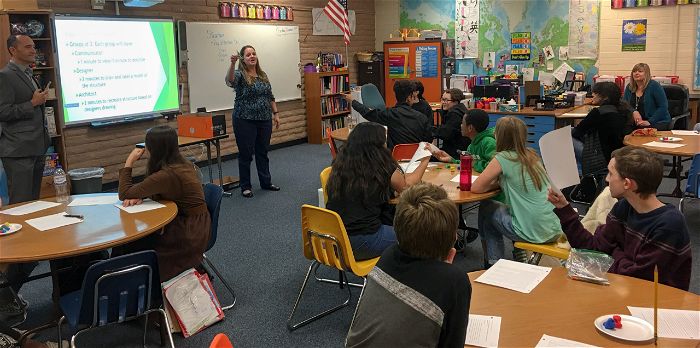Possible Futures Helps K-12 and Afterschool Leaders
Make Career Exploration Accessible, Equitable, and Engaging
Traditional career exploration is not universally accessible and often occurs too late. While youth from an affluent background may learn about high-wage careers through their families’ networks, youth from families with fewer material resources often don’t get these same opportunities.
Possible Futures extends career exploration and preparation to all young people during their middle school years and beyond. This ensures that every young person can learn about careers in high-wage, high-demand industries and access key information for the future, rather than leaving it to chance within an inequitable society.
Possible Futures intentionally opens many possibilities to young learners and supports building a strong foundation for systems of career-connected learning. It pairs a comprehensive exploration of career options with skill-building and a basic introduction to the world of work so that youth can make informed decisions at key stages in their education and career paths.
Build a System for Career Exploration
While any educator can use the JFF Possible Futures Career Exploration Curriculum with learners, the program is most effective when it’s part of a broader system of career exploration, navigation, and pathways. It builds the foundation for young people to successfully take on progressively more demanding work-based learning opportunities and engage in college and career pathways at various stages of their education.
- Before they even enter high school, learners have already explored potential career opportunities, developed a strong sense of their own identities and strengths, and developed age-appropriate employability skills.
- In high school, learners can understand and apply key concepts that will help them make choices to launch productive, meaningful careers that align with their interests and goals. They are also prepared to engage in more intensive work-based learning activities like job shadows, internships, and work-based courses.
- After high school, they are prepared to earn the postsecondary credentials they need to launch successful careers in high-wage, high-demand fields that provide opportunities for advancement.
Move Beyond Compliance to Make an Impact
Possible Futures goes beyond traditional career and technical education to make career exploration a common, compelling piece of learners’ educational experience. This helps states, districts, schools, and your partners move beyond compliance to meaningful action so you can better support your learners to achieve future success.
It can help you meet mandates and requirements, such as Education and Career Action Plans and career literacy standards. You can also leverage Perkins Reserve Funding to build the beginning of stronger talent pipelines through Possible Futures.




